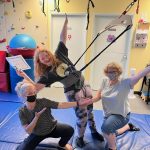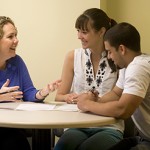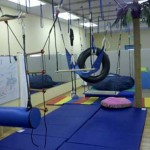If your child is having trouble being calm and it is preventing your child from being able to pay attention, behave well and learn and making you feel stressed and frustrated.
Here are some tips that can help make you better fast.
A lot of the conventional treatments such as medications, counseling and tutoring don’t work because they do not address the root of the problem. This problem requires building a solid sensory motor foundation. And if you ignore it your child may fail in school, have poor self esteem, not be able to develop meaningful friendships/relationships and make poor choices leading them down the wrong path in life.
If you are serious about getting better and want to be able to enjoy daily activities, see success in school comfortable out in the community then read below.
One quick tip for you to do on your own at home is to do a calming activity such as “Bubble Mountain”. I’ll show you how you can learn it below.
In the meantime, follow these instructions now to get a jumpstart on faster results:
- Things you should NOT do for the next two weeks: Do not over-stimulate or over-schedule your child. Give opportunities for quiet time away from noise, light and touch.
- Be wary of not treating the underlying problems will only worsen the condition
Just so you know, I’m not just someone spewing advice, … my name is Mary Kostka and I am an expert on children with sensory processing problems.
I have over 28 years of experience successfully treating over 500 children with this condition.
And the reason why I’m shedding light onto this problem is because Children who have sensory processing disorder are often mis-labled as having attention deficit disorder, obsessive compulsive disorder, oppositional defiance disorder, hyperactive, learning disabled etc. These children are usually very bright, creative and amazing. They are so often misunderstood and most do not know how to really help them. They are tricky because the things that they struggle with are often caused by something that is not obvious to most people.
I became fascinated by this condition while working as a school OT and saw kids that were falling through the cracks. They often did not qualify for special education but struggled. In fact often they were actually gifted but lacked social skills and were often in trouble. The more I learned about and applied sensory integration techniques the more success I experienced. I became devoted to helping these kids succeed and became certified in Sensory Integration Therapy. In 2008 I opened my private practice which is dedicated to helping these children succeed. Personally I have a deep understanding of this condition since it impacts myself and my family. I was sneaky enough to get my sensory needs met without getting into trouble, but I always had to be chewing gum, rocking my chair on the front two legs (sometimes tripping people) and found every reason possible to get up out of my seat. I was also someone that always had to touch everything. Somehow I made it through school finding ways to stay focused. I love helping these children succeed and teaching their parents understand how to help them as well.
Some of the most common causes of this problem are:
Poor core strength, poor sense of position and movement, overly sensitive to touch, light and sounds. Active primitive reflexes. All of these affect the child’s ability to sit still, be calm, and pay attention to learn. They are internally focused and distracted by their body which impacts their ability to focus outwardly to learn and behave..
Here’s what one of my patients had to say,
“‘Ohana OT has had an impact on our family life. It has significantly reduced the Chaos in the household. When Alex started at ‘Ohana OT he was clumsy, violent, had huge tantrums and was not emotionally connected to peers. He could only identify “mad” and “sad”. He was not aware of where he was in relation to his surroundings. He was very sensitive to new sounds and textures. He had poor balance and had a hard time with change. Now the changes are night and day with his ability to deal with and understand his feelings. He has gained an understanding of his emotions and how to deal with them. He can ride a bike and he learned to tie his shoes. He loves trying new foods. He has improved with transitions. He has made friends. Learning about OT and all that it covers has helped to understand what is going on with Alex and how to help him. The staff are friendly and informative.” – Amanda
If you are serious about wanting to get better quickly, sign-up for my Workshop.
This is what you will learn:
- How to do the amazing sensory exercises such as “Bubble Mountain” on your own from home.
- The #1 thing you need to know about getting back to normal
- The treatments you need to avoid like the plague.
- The 3 step fastest methods to getting better fast.
- The secret no one will tell you because most don’t know.
Sign up for the FREE workshop today!





